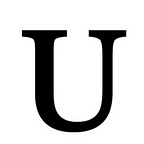Shaina Shikoff on Being a Female Engineer
Originally from outside of Philadelphia, Pennsylvania, Shaina Shikoff is currently a solutions consultant at Appian Corporation, living in Arlington, Virginia. Just a couple of years ago, Shaina graduated from the University of Virginia majoring in Systems and Information Engineering, however, she never expected that she would ultimately become an engineer. In high school, Shaina was always interested in a lot of different subjects, but avoided pigeonholing herself into one so early on. Nevertheless, in college she found that there were a lot of opportunities for women in the engineering field. Civil engineering she found rather technical, which led her to major in Systems and Information Engineering, a newer field that brings business, science, and engineering all together. Systems and Information Engineering is a field of engineering that focuses on the intersection of systems, which can range between business systems to mechanical systems and everything in between. In Systems and Information Engineering, you also learn how to design and manage systems most efficiently and how humans interact with systems, as well as some related coding and data analytics.
In college, Shaina found one introductory engineering class to be most compelling, where she learned about major engineering failures, such as the Challenger disaster, the collapse of Tacoma Narrows Bridge, and The Great Molasses Flood of 1919. Shaina saw this class as being a particularly interesting way to introduce the field of engineering and how engineering has used past experiences to improve upon itself. Outside of engineering, it was a class on Dracula that Shaina enjoyed the most.
During her time at the University of Virginia, Shaina joined the Society of Women Engineers in order to develop a supportive network of women within the field of engineering. She also enjoyed building friendships with other engineers that could relate to her in a way that some of her friends within other majors couldn’t. One of the most valuable parts of being in the group, Shaina mentioned, was that she was able to seek the advice of women engineers that were older than her.
In college, Shaina felt that she didn’t stand out as a female minority, because her major had a fair 60/40 ratio of men to women. However, when she entered the workforce, she began to see that across the field of engineering at her company, there were significantly more men. Nowadays, Shaina doesn’t find it shocking to be the only woman in the room, which comes along with a self-imposed pressure to prove her credibility and competence. Coupled with her young age and being the first hire within her division’s college program, Shaina has found client meetings and projects to be daunting at times, but rewarding nevertheless.
Looking towards the future, Shaina sees more opportunities for women in technology and engineering than ever. Shaina admits that there are not a lot of women in engineering compared to men, by any means, but that women are definitely starting to be more valued and encouraged to join the field, especially as engineering grows and develops. “Women have a different way of thinking and diversity of thought is important, as a unique perspective is always valued,” Shaina mentions.
Some advice Shaina has for a woman pursuing engineering?
Shaina advises that you should be willing to push yourself out of your comfort zone and work hard- maybe even harder than your male counterparts to prove yourself. “When you are out of college it is important to remember that everything isn’t going to be handed to you,” she emphasizes. Shaina also mentions that you should not feel held back by the stereotypes that surround you, “if you are passionate about it, then go for it.” Some other pieces of advice Shaina takes to heart are to try to get as many new experiences as possible in order to learn about what you like and don’t like early on in your career. Also she recommends developing a support system of women that you trust within your company, in order to bounce ideas off of or seek advice from.
As the future of work changes tremendously in our COVID-19 world, I am hopeful that many would be inspired by Shaina’s story to enter the field and diversify engineering one woman at a time.
Originally published at http://ursuladedekind.com on November 28, 2020.
